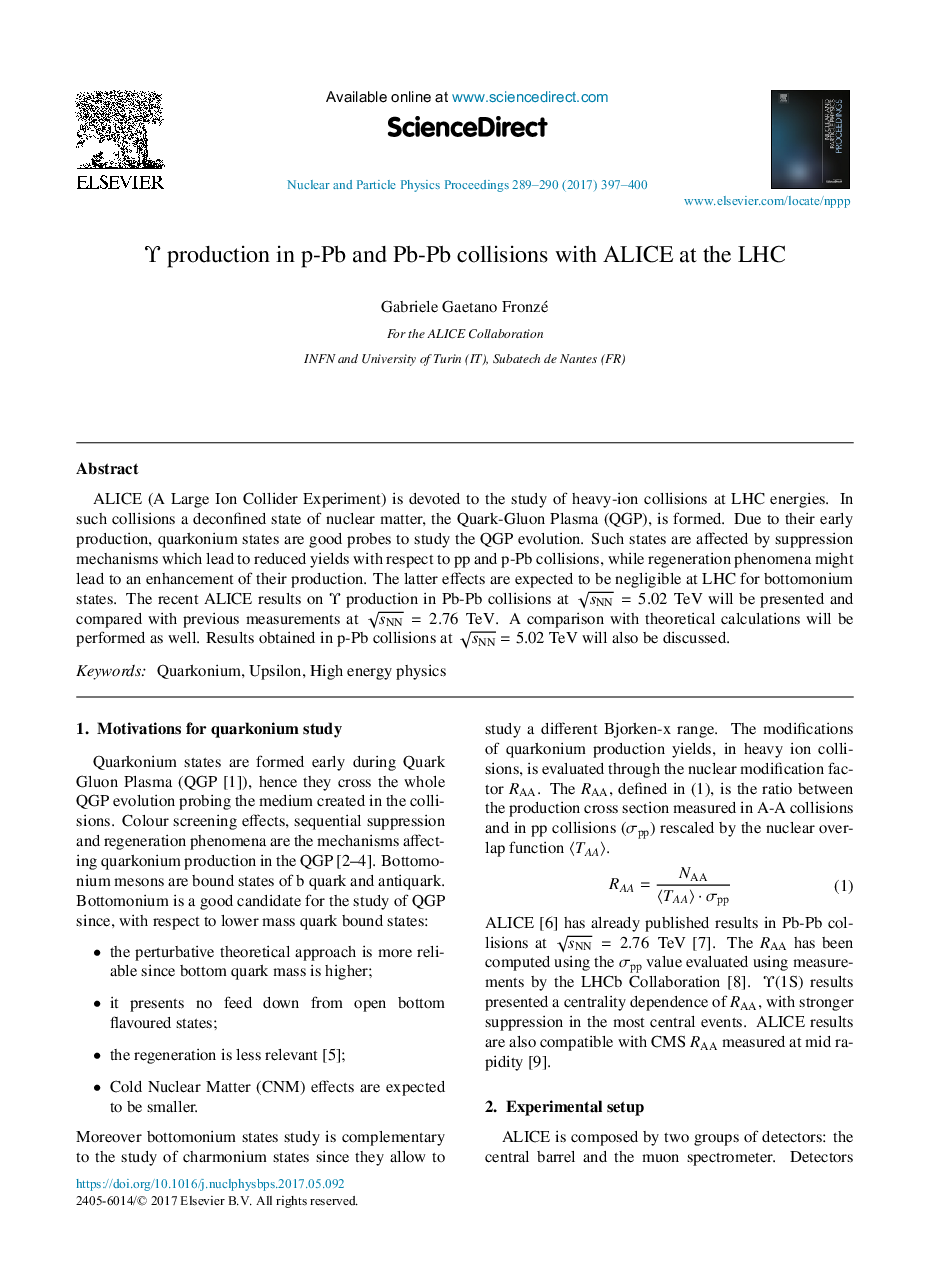| Article ID | Journal | Published Year | Pages | File Type |
|---|---|---|---|---|
| 8182576 | Nuclear and Particle Physics Proceedings | 2017 | 4 Pages |
Abstract
ALICE (A Large Ion Collider Experiment) is devoted to the study of heavy-ion collisions at LHC energies. In such collisions a deconfined state of nuclear matter, the Quark-Gluon Plasma (QGP), is formed. Due to their early production, quarkonium states are good probes to study the QGP evolution. Such states are affected by suppression mechanisms which lead to reduced yields with respect to pp and p-Pb collisions, while regeneration phenomena might lead to an enhancement of their production. The latter effects are expected to be negligible at LHC for bottomonium states. The recent ALICE results on Ï production in Pb-Pb collisions at sNN=5.02Â TeV will be presented and compared with previous measurements at sNN=2.76Â TeV. A comparison with theoretical calculations will be performed as well. Results obtained in p-Pb collisions at sNN=5.02Â TeV will also be discussed.
Keywords
Related Topics
Physical Sciences and Engineering
Physics and Astronomy
Nuclear and High Energy Physics
Authors
Gabriele Gaetano Fronzé, ALICE Collaboration ALICE Collaboration,
